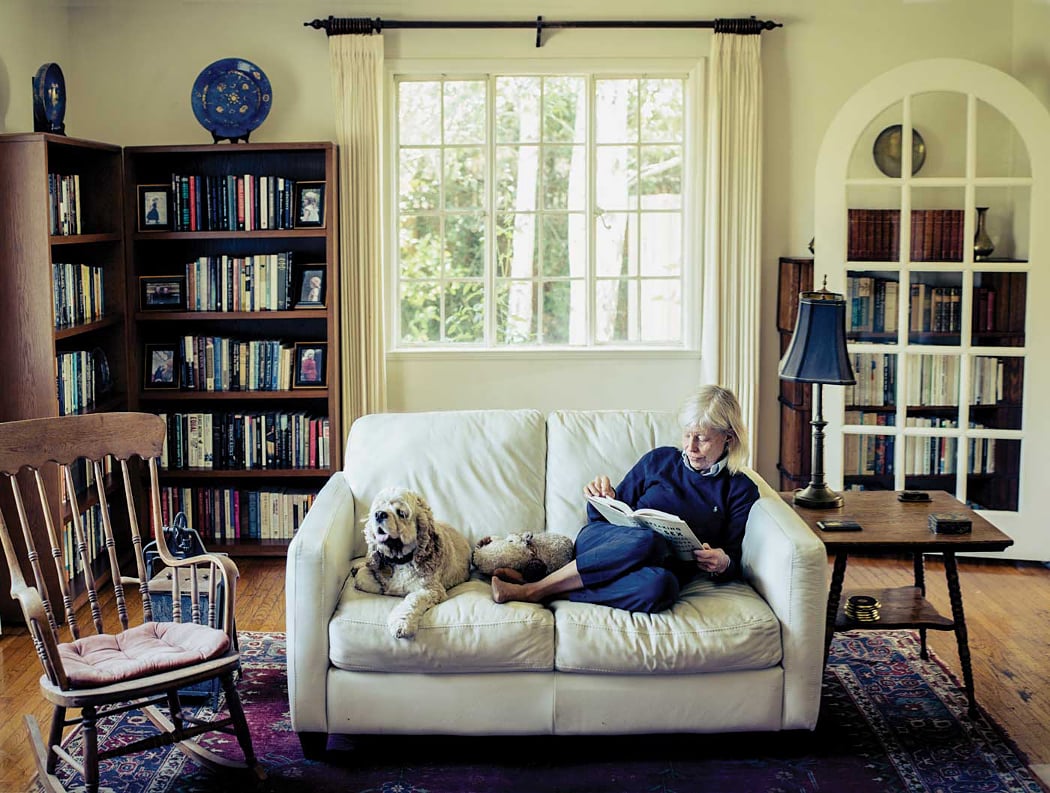Law professor Deborah Rhode, a renowned legal ethics and gender law and policy scholar, died on Friday at 68.
To wrap Rhode’s countless board positions, awards, publications, and accomplishments otherwise is an impossible task. Over the course of her legal career, Rhode authored 30 books on gender, ethics and public policy and became the most cited scholar in legal ethics.
“I don’t know of another legal academic career that remotely matches it,” Ralph Cavanagh, Rhode’s husband, told The Daily.
Rhode is survived by Cavanagh, whom she met as an undergraduate, as well as her sister Christine Rhode, eight beloved nieces and nephews and an uncountable number of mentees and students.
Though a clearly accomplished lawyer, Rhode never operated a commercial legal practice, instead dedicating her life to public service and driving profession-wide shifts toward pro-bono work. After getting both her undergraduate and law degrees from Yale, Rhode clerked for Supreme Court Justice Thurgood Marshall before joining the Stanford Law School faculty in 1979.
“She stood out from the crowd. Even though she was five-foot-one and 90 pounds,” said fellow law professor Hank Greely ’74, one of Rhode’s closest friends since college. Greely emphasized that while Rhode jokingly complained of her height, it clearly didn’t inhibit her career nor competitive nature (over the past few months, the two played racketball and tennis every Monday and Saturday).
Cavanagh recalled that Rhode had always been an articulate and talented — sometimes humorous — orator.
Rhode was a persuasive debater dating back to her college years. One of her favorite debate rivals was Merrick Garland, an Obama-era Supreme Court nominee and President-elect Biden’s current nominee for attorney general.
Of her speaking, “the style is impossible to imitate, but incredibly compelling, fluid, fluent, precise,” Cavanagh recalled.
Early in her time at Yale, she rivaled her husband too, before going on to defeat him to become first female president of the Yale Debate Association. The role was previously held by National Review founder William Buckley Jr. and former Secretary of State John Kerry.
She was also the first female graduate of Yale college to be elected to the Yale governing board, the policy-making body for the university. Mentioning the countless other positions she held that woman had never before, “she excelled to the point where gender was irrelevant,” her husband said. “She would go places where she’d never been and where they’d never seen anyone like her.”
At Stanford, she founded the Stanford Center on the Legal Profession, an institute that promotes research focused on issues including ethical values and increasing access to justice, two core tenets of Rhode’s research, teaching and writing. Rhode was also the founding president of the International Association of Legal Ethics and a founding director of Stanford’s Center on Ethics.
One of Rhode’s students before she became a colleague at the Law School, law professor Shirin Sinnar J.D. ’03 long looked up to Rhode.
“She was the most ethical of human beings, and it’s not often that you find people who can both say the right things and do the cutting-edge research on a topic, but also living by example. And she did,” Sinnar said, describing Rhode as a “lion in her field of ethics and leadership.”
Rhode was also a pioneer in the area of leadership training, which her husband said she considered to be one of her greatest points of pride and service. She thought it necessary that law schools better prepare students for leadership positions as so many go on to become figures of power, and she launched a course on leadership at Stanford, LAW 7028: “Lawyers and Leadership.” Other law schools followed in offering leadership classes.
“We’ve all had in very recent memory reminders of just how important that is — how tragically everyone ends up if it isn’t fair,” Cavanagh said. “She thought deeply about that. She thought particularly about it in the context of female leadership. She was… a creator of leaders.”
A figure of inspiration for generations of great teachers and public interest lawyers, she also had a deep understanding of the barriers women face in their careers. In her most-sold book “The Beauty Bias,” Rhode identified the outsized importance of physical attractiveness in driving personal success, originally inspired by a conference she attended in which she saw women “hobbled by their ludicrously constraining footwear,” Cavanagh said.
Sinnar, Rhode’s former student and colleague, said that Rhode “went out of her way to make people feel like they belonged.” Rhode, only the second female law professor granted tenure, was always pushing for greater diversity within the law school.
Rhode was a mentor to many, both intellectually and personally. She was a “sounding board of just how one should live their life,” said Renee Knake Jefferson, a law professor at the University of Houston and one of Rhode’s mentees.
Law students also knew Rhode for her dog Stanton, named for renowned Yale professor Stanton Wheeler. She died at her home in Palo Alto. The cause of her death is unknown.
Outside of academia, Rhode was also a gifted black-and-white photographer, at one time capturing the Supreme Court and Justice Thurgood Marshall, for whom she clerked. Her photos continue to hang around the halls of Stanford Law’s campus and are entered into the official record of the nation’s high court.
Reflecting on her many “firsts” as a woman and endless accomplishments, Cavanagh said “she had an acute sense of the history of her time” and knew she was making waves.
Greely reflected similarly. “For such a tiny person she made a very large impact,” he said.
Contact Sam Catania at samcat ‘at’ stanford.edu and Julia Ingram at jmingram ‘at’ stanford.edu.
